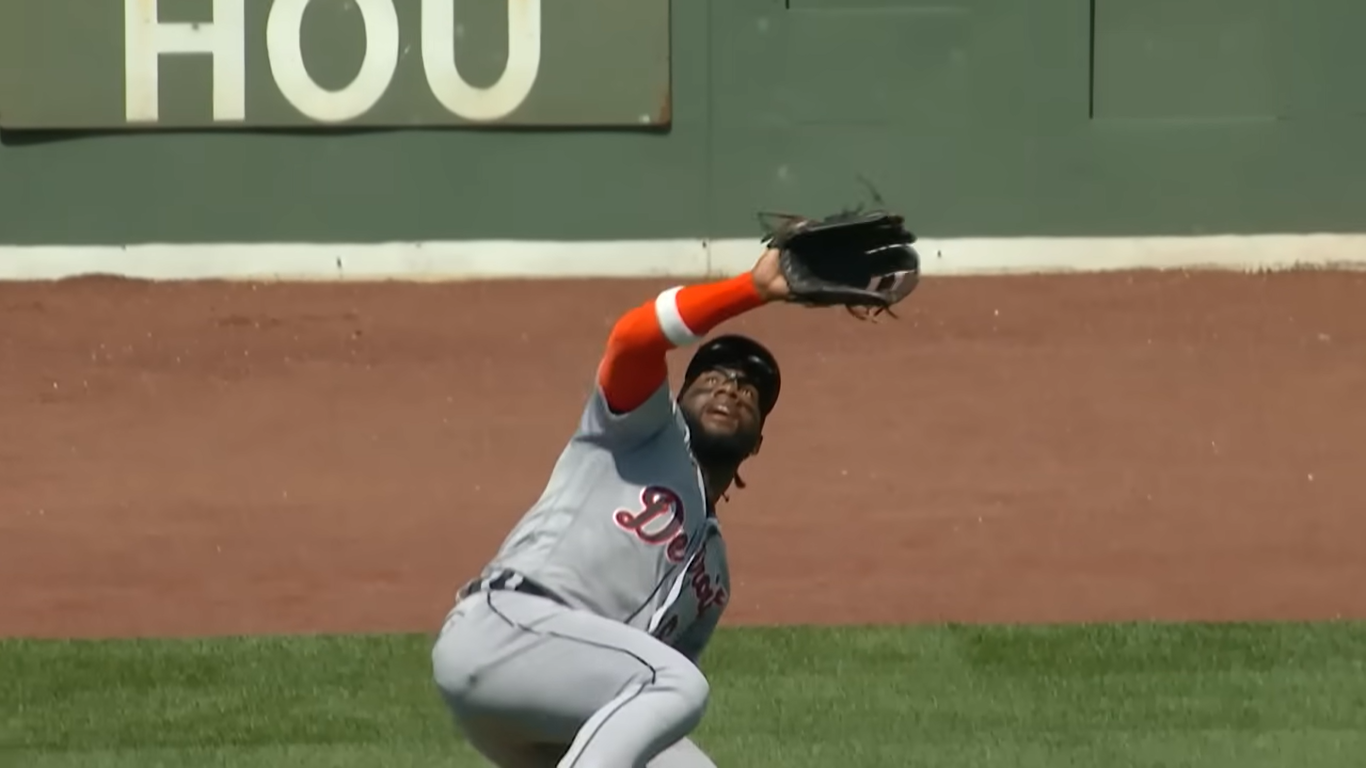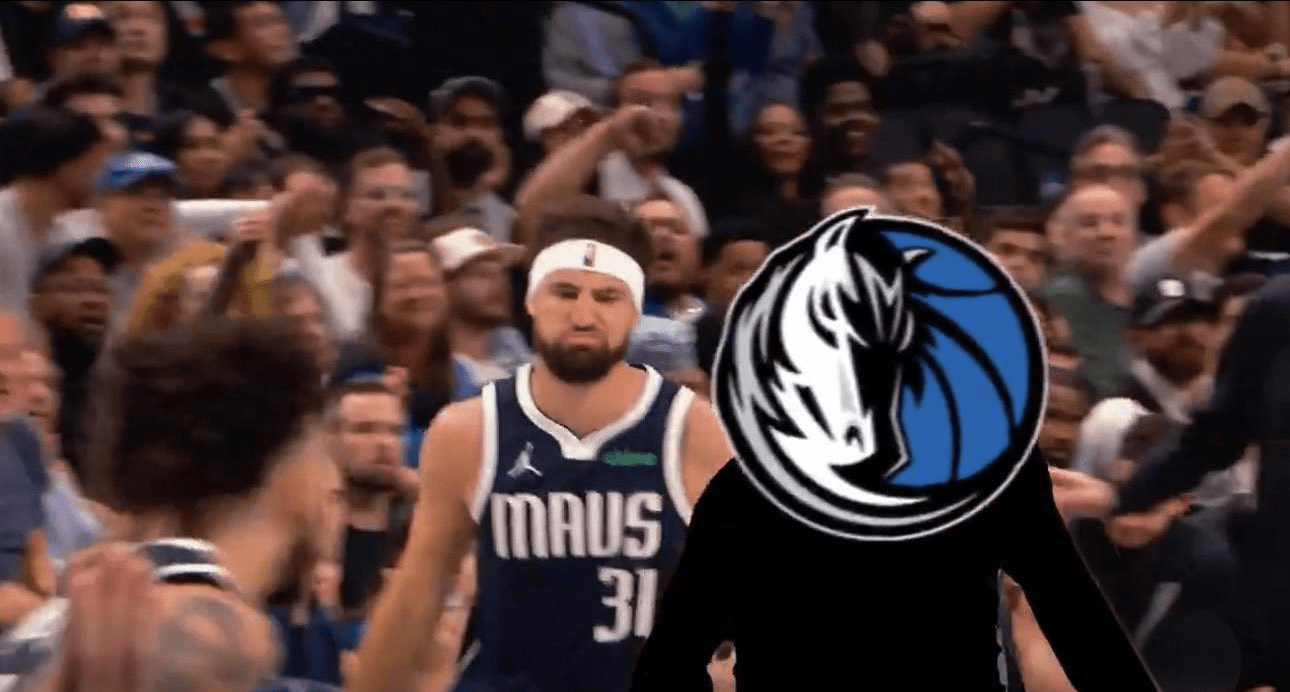An entertaining 7-6 Royals win over the Mariners that ended on a walk-off bunt Monday night couldn't have happened without Bobby Witt Jr.'s inside-the-park dong in the bottom of the fifth. And that play couldn't have happened without a key mistake from Seattle right fielder Dominic Canzone, who couldn't see the ball that was hurdling toward him, got conked as he tried to make a catch, and then declined to chase it down as the Royal speedster zoomed around the bases. I say "mistake" and not "error" because that's how the official scorer saw it. Witt got credited for a home run and Logan Gilbert got charged with an earned run.
A similar play happened on Sunday in the Red Sox's win over the Tigers. In the bottom of the fifth, Trevor Story led off with a high fly ball to left. But Detroit's corner outfielder Akil Baddoo lost it in the early afternoon sunshine. The ball plopped a foot or so next to him, and Story ended up on second, where he'd later score on a three-run jack by Adam Duvall. A "sun-caused double," according to the call, but a double nonetheless.
These two plays—or rather, their respective official scorers—are emblematic of a larger trend. Andy McCullough and Zack Meisel at The Athletic pointed out last week that errors in baseball are at an all-time low of 0.51 per game, and the league's fielding percentage at .986 has never been higher. But those who watch the games and not just the box scores are recognizing that not all of that improvement can simply be credited to more skilled fielding. Scorers are just slower than ever to mark a misplay as an error:
“It’s become very lenient,” one manager said.
Another coach added: “It’s almost like guys now are like, ‘Well, if it’s not a routine ball, they’re getting hits.’”
“They have definitely loosened that up,” Marlins reliever David Robertson said.
MLB pushed back on the idea that there's been any kind of directive to drop error tallies, and chief operations and strategy officer Chris Marinak offered the game's new rules as explanation for the decline: Scorers have to make decisions quicker and are more willing to lean toward a hit under pressure, and ground balls that felt routine when the shift was more exaggerated now require extra work from infielders, who are getting the benefit of the doubt on the "ordinary effort" concept that separates H from E.
But those reasons ignore that, before this year, the all-time low for errors per game was set in 2022, and before that, it was set in 2021. (The previous low was 2013.) And as far as outfielders losing track of the ball specifically, I remember being very surprised last year when this ball bonking Josh Lowe's head in Trey Mancini's final Orioles at-bat gave the Baltimore man an inside-the-parker.
What feels more likely is that, since the 2020 season where official scorers weren't allowed in ballparks and MLB began delivering increased data and video to help them make their decisions, there's been a shift in how those scorers perceive fielding: It's harder than they thought! And with their decisions, they are signaling that we should cut these guys some more slack.
Yes, the sun and the lights provide an excuse for these embarrassing plays, but they're a part of every game, and for a fielder, reading the ball off the bat, and moving into position to make a play without losing sight of it, are cornerstone defensive skills. A basic level of competence in them is expected as part of the job's "ordinary effort." And if they screw up, that should be an error just as surely as if they let a ball bounce off the heel of their glove.
Sunday's Rangers-Giants game had one of the best examples you'll ever see of how deciphering contact impacts everything. Luis Matos, playing center for SF, completely misread the trajectory of Corey Seager's fly, retreating before realizing the need to run in. A stumbling Matos made the play and produced a highlight, but he could have made his life much easier if he'd read it correctly off the bat.
I feel pretty confident that this play wouldn't have been scored an error if the hit had dropped. It did take extraordinary effort for Matos to pull it off. But only because he screwed up the ordinary part.





